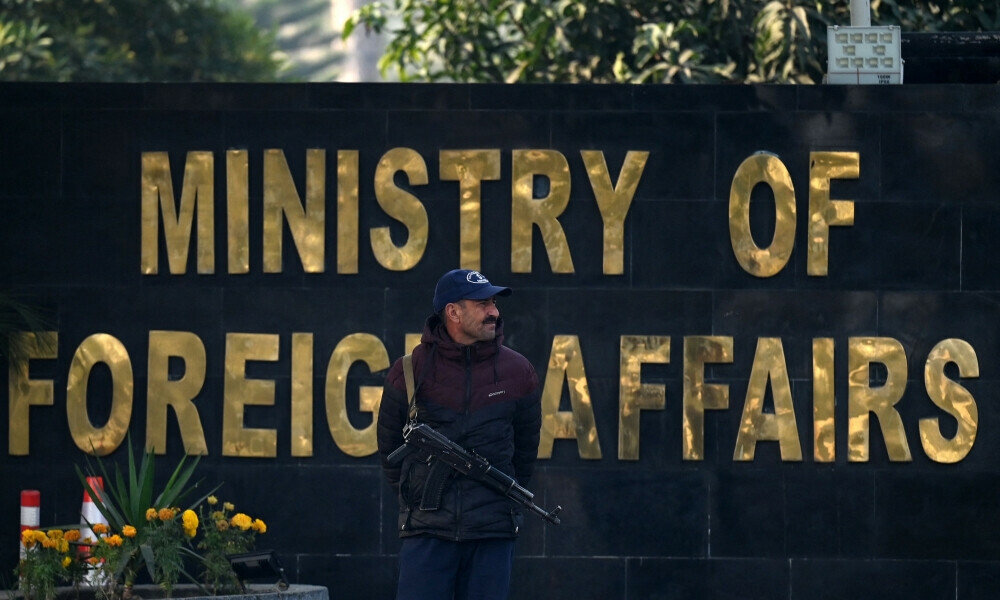Pakistan has categorically rejected allegations made by Ukrainian President Volodymyr Zelensky, who claimed that foreign mercenaries from multiple countries—including Pakistan—were involved in the ongoing conflict in northeastern Ukraine.
In a strong response on Tuesday, Pakistan’s Foreign Office (FO) issued an official press release dismissing the claim as “baseless and unfounded,” stressing that no concrete or verifiable evidence had been shared by Ukraine to support the assertion.
On Monday, President Zelensky took to social media platform X (formerly Twitter) to report the participation of foreign fighters alongside Russian forces in Ukraine.
“We spoke with commanders about the frontline situation, the defence of Vovchansk, and the dynamics of the battles,” Zelensky posted.
“Our warriors in this sector are reporting the participation of mercenaries from China, Tajikistan, Uzbekistan, Pakistan, and African countries in the war. We will respond.”
This statement immediately drew international attention, as the Russia-Ukraine war, now in its third year, continues to see diplomatic tension intensify across the globe.
In a carefully worded official statement, Pakistan’s Foreign Office clarified its stance:
“To date, Pakistan has not been formally approached by the Ukrainian authorities, nor has any verifiable evidence been shared with us to substantiate such claims,” the FO stated.
The government further emphasized that it would take up the matter with Ukrainian officials and seek clarification through diplomatic channels.
“The Government of Pakistan shall take up this matter with the Ukrainian authorities and seek clarification in this regard,” the FO added.
Pakistan has consistently maintained a neutral and diplomatic approach to the Russia-Ukraine conflict, advocating for peaceful dialogue and a negotiated settlement in line with international law and the United Nations Charter.
The Foreign Office reiterated this principle in its latest statement:
“Pakistan reaffirms its commitment to the peaceful resolution of the Ukraine conflict through dialogue and diplomacy, in accordance with the principles of the UN Charter.”
This reaffirms Pakistan’s broader foreign policy stance of non-interference in global conflicts and upholding sovereignty and territorial integrity.
Zelensky’s remarks, while intended to underscore the complex nature of the battlefield, have caused unease in countries named without any verifiable support. The mention of Pakistan, along with other nations such as China, Uzbekistan, and unspecified African states, has drawn criticism for potentially escalating diplomatic tensions.
It is important to note that such claims, if unsubstantiated, can impact bilateral relations, especially at a time when many countries are navigating delicate diplomatic balances in the wake of the Russia-Ukraine war.
Pakistan’s swift and firm response reflects a desire to protect its international image, especially from associations that suggest involvement in foreign conflicts through unofficial channels.
There is no credible record or history of the Pakistani government supporting or allowing its citizens to engage in mercenary activity in Ukraine or any other European conflict.
Furthermore, Pakistani nationals serving in any foreign conflict—particularly without state authorization—would be subject to serious legal consequences under Pakistani and international law.
Rather than engaging in a war of words, Pakistan has indicated it will follow diplomatic protocol and seek engagement with Ukrainian officials. This step reinforces Pakistan’s commitment to international diplomacy and responsible state behavior amid a volatile geopolitical climate.
By asking for clarification, Pakistan leaves room for de-escalation while asserting its innocence and upholding its foreign policy values.
The international community has yet to formally react to Zelensky’s statement. However, it is generally accepted that such grave accusations must be supported by verifiable intelligence or diplomatic communication—neither of which, according to Pakistan’s Foreign Office, has been shared.
Without substantiation, such remarks risk damaging credibility and undermining trust in international partnerships.




